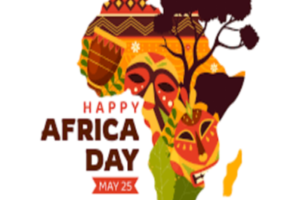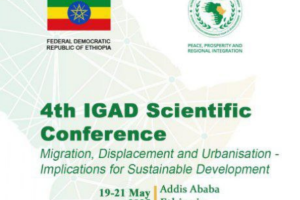BY SOLOMON WASSIHUN
The plot by Egypt and Sudan intends to cripple the progress of GERD, but contrary to its expected outcome, it served the big dam in the making to become arguably the most famous dam in the whole world. As we see it now, the GERD agenda is increasingly ubiquitous in the power corridors of the most powerful nations, as well as intergovernmental agencies. It has also become a regular staple of the leading international media houses.
Ironically, the major credit for shooting GERD to such international recognitions goes to the Egyptians’ well-greased relentless hostile diplomatic and media campaign. They even had the gut to take the GERD to UNSC [UN Security Council]for the second time. Analysts say never before had a Dam,[which is just a development projuct] been a subject of discussion in the 75 years of UNSC history.
Egypt and Sudan have been waging a multifaceted plot to jeopardize Ethiopia’s flagship project right from its beginning a decade ago. They have involved themselves in several plots aiming to destabilize Ethiopia. They have also been bent on a media campaign to distort Ethiopia’s justified cause for building GERD. In the diplomatic arena, they have been plotting to isolate Ethiopia from the international community and twist its arms into submission to their will.
The two lower riparian states, Egypt and Sudan, know that the few technical and legal issues that remain unsolved in the GERD talks are not relevant topics for UNSC. Thus they doctored the GERD case for the UNSC audience portraying a development endeavor as a potential cause concern for regional peace and security.
The two countries pushed the GERD agenda to the UNSC’s table through their co-member of the Arab League, [Tunisia, a member of UNSC] with great expectations. They had even forwarded a draft resolution with the hope of getting the seal of approval from the UNSC. The draft resolution presented on behalf of the Arab League was demanding Ethiopia cease the second filling of the dam. The blunt unfairness and bias of the draft resolution against Ethiopia were so easy to recognize.
Egypt and Sudan have thrown their full weight behind their desperate effort to get the draft resolution adopted by the UNSC. The Egyptian Foreign Minister and his entourage had flown to New York, where the UNSC’s headquarters is situated, several days before the UNSC session convened. They did that to get ample time to lobby for the approval of the draft resolution and thus had been holding meetings with the UN officials and ambassadors of the nations that are members of the security council.
Eventually, to the dismay of the Egyptians and the Sudanese, it turned out that the diplomatic duel, a single nation, Ethiopia versus a bunch of states, the Arab League, in the ultimate arena of world politics has culminated in the victory of truth, and prevalence of justice. It was Ethiopia that has truth on its side. Egypt and Sudan lost in the battleground they staged themselves.
A scholar commenting on the recent decision of the UNSC said: “the decision of the security council and the rejection of the draft proposal is a spectacular diplomatic victory to Ethiopians. The Ethiopians have used the challenge posed against them by the Arab league as a rare opportunity to explain to the whole world their peaceful and legitimate cause for building GERD. On the flip side, it is a huge blow to the Egyptians and the Sudanese. It revealed to the whole world that their narrative regarding the equitable utilization of the Nile lacks logic and therefore is erroneous.”
In essence, the two low riparian counties have entered into their own booby trap. Now their hope of rallying the international community to stand in Ethiopia’s way to conduct the second filling of the GERD has gone into thin air. Their military posturing and diplomatic threats of economic sanctions have gone busted. The Security Council has laid its verdict requiring all parties to resolve their differences through a peaceful negotiated settlement under the aegis of the African Union.
Following this decision, Egypt and Sudan need to abide by the directions set in the decision. Now, they are under the watchful eye of the international community, which would deter them from committing any provocations and subversive plots against Ethiopia. The Ethiopians, on the other hand, feel reassured to carry on the second filling of GERD.
The Ethiopian experts’ team leader in the tripartite negotiations says: “the Sudanese and Egyptians accuse Ethiopia of what they call unilateral action for starting the second filling of the dam. The truth is the water filling is a part of the dam construction process as stipulated in chapter4 and 5 of the DOP. Besides, Ethiopia did not single-handedly prepare the water filling schedule. Back in 2018, it was the 15 experts drawn from Egypt, Sudan, and Ethiopia who prepared the schedule. Now it is found attached with the draft negotiation agreement.”
The foiled plot of Egypt and Sudan to stop Ethiopia from ensuring its equitable share of its own river Abbay[the Blue Nile] is composed of several lies and illogical narratives like the one mentioned above regarding the water filling schedule. The two lower riparian countries have never stated the real reason why the GERD negotiation drags on for so long with no end in sight. They both blamed Ethiopia for the failure to reach a final agreement. It is worth remembering here that Ethiopia has never walked away from the series of negotiation tables facilitated by the AU. On the contrary, Sudan did it several times, and Egypt shows its contempt for AU by unilaterally taking the matter to the UN.
An Ethiopian expert who is a member of the negation team says. “Regarding the GERD filling, experts of the countries have [almost ]agreed, only a few matters remain. The sticking point here is the future use of Abay. Egyptians and Sudanese deliberately avoid raising this issue [openly] the way they talk about the operational aspects. Abay is a significant resource for each and all of the three countries. There is no variation in the degree of the importance of Abay, more for Egypt and Sudan and less for Ethiopia. That is the wrong calculation.
Egypt and Sudan have a deep-seated undercover conviction that Ethiopia’s utilization of Abay needs to be limited to only developing power,[which basically doesn’t consume the water]. To that end, they argue all upstream countries’ development projects on the Nile need to be regulated by Egypt and Sudan. They want Abay for drinking, irrigation, electricity, aquaculture, and more. Ethiopia also wants it for all these purposes, no less!”
The recent debate in UNSC had thrown some light on the abovementioned hidden greed and selfishness of the Egyptians and Sudanese, which is unacceptable by any standard. The desire of the two states for the sustenance of their monopoly on Abay has never been more evident to the international community.
Following their humiliating defeat at the UNSC, the Egyptian and Sudanese officials seem to have waterdown the aggressive tone of their remarks on GERD. And yet, their favorite phrases like ‘binding agreement’, ‘our water share[55.5]’ are still there. By the way, who entitled them to that amount share of the Nile? The 1959 agreement signed between Egypt and Sudan? The agreement whose formal title speaks for itself?- “The 1959 Agreement for the Full Utilization of the Nile Waters”. The one that does not make any allowance for the water needs of the nine other riparian states, including even Ethiopia, whose highlands supply more than 86 percent of the water that flows into the Nile River?
Few days after the announcement of the verdict of UNSC, the Egyptian Parliament Speaker said: “Egypt has never stood against its brothers’ right to development, we are following up with the international community to reach a binding agreement to fill and operate the GERD in coordination with the African Parliament.”.Similarly, about a week later, a more surprising comment came from the .the Egyptian president himself “We talked to the Ethiopians and Sudanese of the Nile as a river for partnership, and we want the good for all of us. We stand by the Ethiopians’ side in using GERD as means of development in Ethiopia, as well as for the Ethiopians’ welfare.”
Whatever the cause it may have been, Ethiopians welcome the change in the Egyptians rhetoric with cautious optimism. We know that Egyptians and Sudanese stances and words regarding the Nile affairs continually change much faster than the seasons of the year, or even the weeks of the months.
THE ETHIOPIAN HERALD JULY 21/2021




